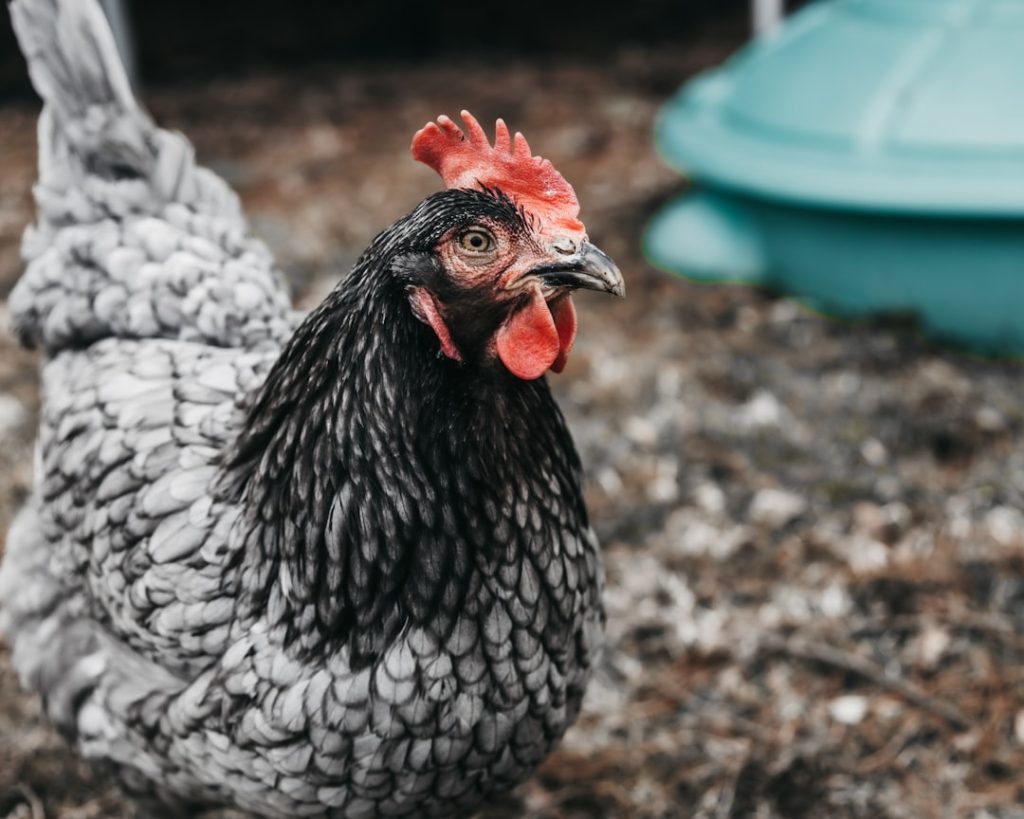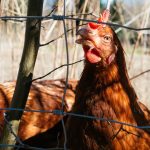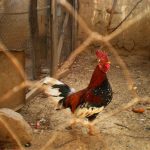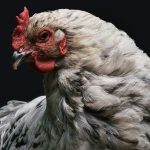Molting is a natural process in chickens’ life cycles, involving the shedding and regrowing of feathers. This typically occurs annually, though some chickens may molt more frequently. Changes in daylight and temperature trigger molting, which is essential for replacing old or damaged feathers to maintain insulation and protection.
During molting, chickens may appear unkempt, lose feathers, and experience decreased egg production as their bodies prioritize feather growth. Chicken owners should understand this process to provide appropriate care during this challenging period. Molting can be classified into two types: hard molt and soft molt.
Hard molt is an intense, rapid process where chickens lose many feathers quickly. Soft molt is a gradual, less dramatic process where feathers are shed and regrown over a longer period. Recognizing the type of molt can help owners anticipate their chickens’ needs and provide suitable care.
Molting can be stressful for chickens, requiring extra attention and support to ensure their health and comfort throughout the process.
Table of Contents
Key Takeaways
- Molting is a natural process in chickens where they shed old feathers and grow new ones
- Proper nutrition during molting includes high-protein feed and supplements like vitamins and minerals
- A clean and comfortable coop environment is essential for chickens during molting to reduce stress and promote healthy feather regrowth
- Limiting stress and handling during molting can help minimize feather loss and support the molting process
- Monitoring feather loss and managing it through proper nutrition and environmental conditions is crucial for supporting healthy feather regrowth
- Supporting healthy feather regrowth involves providing a balanced diet, reducing stress, and ensuring a clean environment
- Severe molting issues may require veterinary care, so it’s important to seek professional help if necessary
Providing Proper Nutrition for Chickens During Molting
Meeting Nutritional Needs
It is essential to provide a balanced diet that meets the nutritional needs of molting chickens to support healthy feather regrowth and overall well-being.
Protein-Rich Diet
Feathers are made up of protein, so it is important to increase the protein content in the chickens’ diet during molting. Including high-quality sources of protein such as mealworms, fish meal, or soybean meal can help support feather regrowth and ensure that chickens receive adequate nutrition during this challenging time.
Additional Nutrients and Supplements
In addition to protein, molting chickens require a well-balanced diet that includes vitamins and minerals such as vitamin A, vitamin E, and zinc to support healthy feather regrowth and overall immune function. Supplementing their diet with fresh fruits and vegetables can also provide essential vitamins and minerals to support their health during molting.
Maintaining a Clean and Comfortable Coop Environment
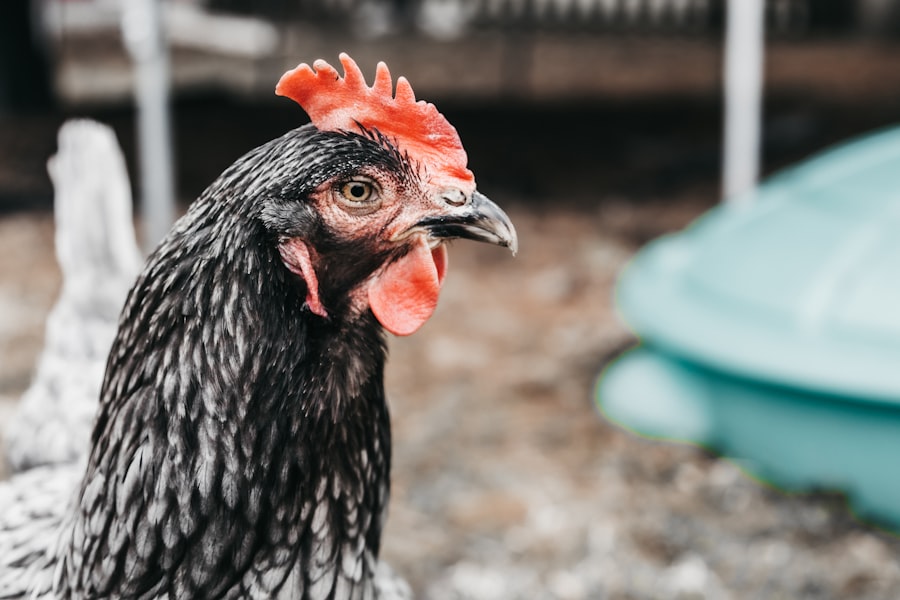
During molting, chickens may spend more time in the coop as they focus on feather regrowth and may be more sensitive to changes in their environment. It is essential to maintain a clean and comfortable coop environment to support their well-being during this time. Regularly cleaning the coop, removing soiled bedding, and providing fresh bedding can help prevent the spread of bacteria and parasites that can affect molting chickens’ health.
Additionally, ensuring proper ventilation and adequate space in the coop can help reduce stress and promote a comfortable environment for molting chickens. Providing ample roosting space and nesting boxes can also help molting chickens feel secure and comfortable as they spend more time in the coop. Ensuring that the coop is free from drafts and protected from extreme temperatures can help minimize stress on molting chickens’ bodies as they focus on feather regrowth.
It is important to monitor the coop environment regularly and make adjustments as needed to ensure that molting chickens have a clean, comfortable, and stress-free living space during this challenging time.
Limiting Stress and Handling During Molting
Molting can be a stressful time for chickens, and it is important to limit stress and handling during this period to support their overall well-being. Handling molting chickens can cause additional stress and discomfort as they focus on feather regrowth, so it is best to minimize unnecessary handling during this time. Additionally, introducing new flock members or making significant changes to the coop environment can also cause stress for molting chickens, so it is important to limit disruptions and provide a stable and predictable environment for them.
Reducing stress during molting can help chickens conserve energy and resources for feather regrowth, ultimately supporting their overall health and well-being. Providing a calm and quiet environment, maintaining consistent routines, and minimizing disturbances can help reduce stress for molting chickens. It is important to observe their behavior closely and make adjustments as needed to ensure that they feel safe, secure, and supported during this challenging time.
Monitoring and Managing Feather Loss
Monitoring feather loss is an essential part of supporting molting chickens’ health and well-being. Keeping an eye on the extent of feather loss can help you assess the progress of molting and identify any potential issues that may arise. While some feather loss is normal during molting, excessive or prolonged feather loss may indicate underlying health issues or nutritional deficiencies that need to be addressed.
Regularly inspecting molting chickens for signs of feather loss, skin irritation, or abnormal behavior can help you identify any potential issues early on. Managing feather loss involves providing proper nutrition, maintaining a clean coop environment, and minimizing stress to support healthy feather regrowth. Additionally, addressing any underlying health issues or consulting with a veterinarian if necessary can help ensure that molting chickens receive the care they need to recover from feather loss and maintain their overall health.
Supporting Healthy Feather Regrowth
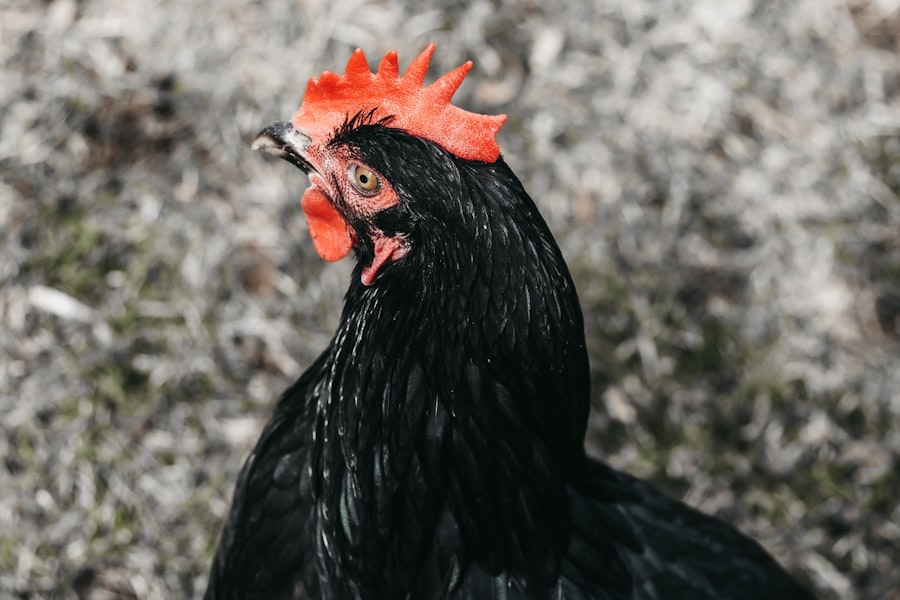
Nutrition for Healthy Feathers
Ensuring that molting chickens receive a balanced diet that includes high-quality sources of protein, vitamins, and minerals is vital for the growth of strong and healthy feathers.
A Clean and Comfortable Coop Environment
In addition to nutrition, providing a clean and comfortable coop environment can help minimize stress on molting chickens’ bodies as they focus on feather regrowth. Regularly cleaning the coop, providing fresh bedding, and ensuring proper ventilation can help create an optimal environment for healthy feather regrowth.
Monitoring for Potential Issues
Monitoring molting chickens closely for signs of skin irritation or abnormal behavior can also help identify any potential issues early on and provide the necessary care to support healthy feather regrowth.
Seeking Veterinary Care for Severe Molting Issues
While molting is a natural process for chickens, severe molting issues may require veterinary care to address underlying health issues or nutritional deficiencies. If you notice excessive or prolonged feather loss, skin irritation, or abnormal behavior in molting chickens, it is important to seek veterinary care to assess their health and determine the appropriate course of action. A veterinarian can conduct a thorough examination, perform diagnostic tests if necessary, and provide treatment recommendations to address any underlying issues affecting molting chickens’ health.
In some cases, severe molting issues may be indicative of underlying health conditions such as parasites, infections, or hormonal imbalances that require veterinary intervention. Seeking prompt veterinary care for severe molting issues can help ensure that molting chickens receive the necessary treatment to recover from feather loss and maintain their overall health. Additionally, consulting with a veterinarian can provide valuable guidance on supporting healthy feather regrowth and addressing any specific needs or concerns related to molting chickens’ health.
In conclusion, understanding the molting process in chickens is essential for providing proper care and support during this challenging time. Providing proper nutrition, maintaining a clean coop environment, minimizing stress, monitoring feather loss, supporting healthy feather regrowth, and seeking veterinary care for severe issues are key aspects of caring for molting chickens. By taking proactive measures to support their health and well-being during molting, chicken owners can help their flock through this natural process with care and compassion.
If you’re looking for tips on how to keep chickens from going in a molting, you might also be interested in learning about whether guinea fowl can live with chickens. Check out this article to find out more about the compatibility of these two types of poultry.
FAQs
What is molting in chickens?
Molting is the natural process in which chickens shed their old feathers and grow new ones. This typically occurs once a year and can last for several weeks.
Why do chickens molt?
Chickens molt in order to replace old or damaged feathers, which can affect their ability to regulate body temperature and protect themselves from the elements.
How can I keep chickens from going in a molt?
It is not possible to prevent chickens from molting, as it is a natural and necessary process for their health and well-being. However, providing a balanced diet, ensuring they have access to clean water, and minimizing stress can help support them through the molting process.
What should I feed my chickens during molting?
During molting, it is important to provide chickens with a high-protein diet to support feather regrowth. This can include foods such as mealworms, sunflower seeds, and poultry feed specifically formulated for molting chickens.
How long does molting typically last?
Molting can last anywhere from a few weeks to a few months, depending on the individual chicken and environmental factors. It is important to be patient and provide proper care during this time.
Meet Walter, the feathered-friend fanatic of Florida! Nestled in the sunshine state, Walter struts through life with his feathered companions, clucking his way to happiness. With a coop that’s fancier than a five-star hotel, he’s the Don Juan of the chicken world. When he’s not teaching his hens to do the cha-cha, you’ll find him in a heated debate with his prized rooster, Sir Clucks-a-Lot. Walter’s poultry passion is no yolk; he’s the sunny-side-up guy you never knew you needed in your flock of friends!

